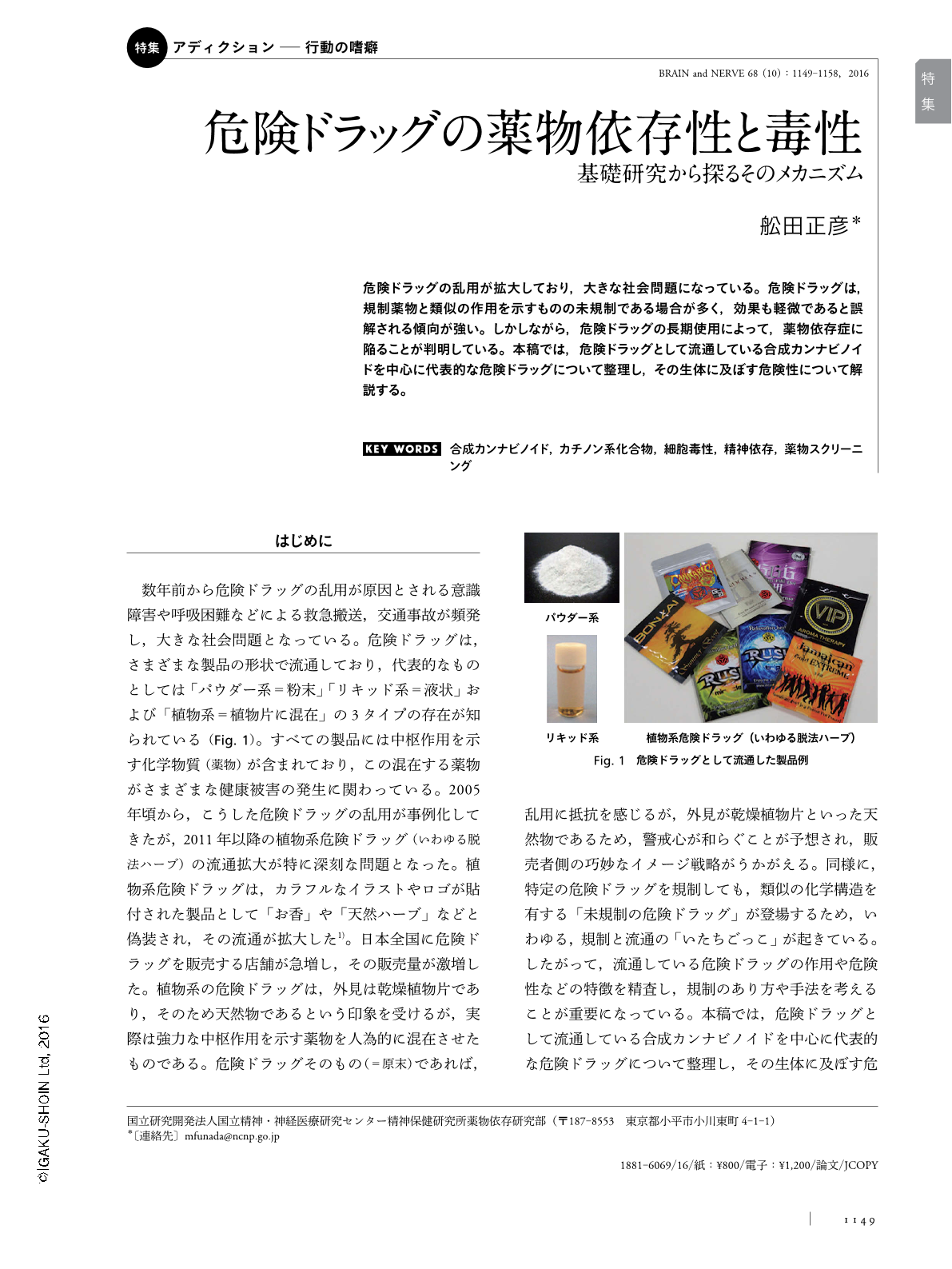Japanese
English
- 有料閲覧
- Abstract 文献概要
- 1ページ目 Look Inside
- 参考文献 Reference
危険ドラッグの乱用が拡大しており,大きな社会問題になっている。危険ドラッグは,規制薬物と類似の作用を示すものの未規制である場合が多く,効果も軽微であると誤解される傾向が強い。しかしながら,危険ドラッグの長期使用によって,薬物依存症に陥ることが判明している。本稿では,危険ドラッグとして流通している合成カンナビノイドを中心に代表的な危険ドラッグについて整理し,その生体に及ぼす危険性について解説する。
Abstract
The number of law-evading chemical substances that pose serious health risks to humans is increasing worldwide, including Japan and the Western world, and their abuse is becoming a serious social problem. Analysis of the chemical substances in these herbal products revealed the presence of synthetic cannabinoids. This review summarizes the pharmacological actions and dangers of chemical substances contained in law-evading herbal products by focusing on synthetic cannabinoids as a group of chemical substances contained in these products. We established a psychic-dependence liability and cytotoxicity screening system for synthetic cannabinoids by using animals and cell cultures. In a place-conditioning study, the synthetic cannabinoids produced a significant conditioned-place preference. The rewarding effects of synthetic cannabinoids were completely suppressed by a cannabinoid CB1 receptor antagonist. Administration of synthetic cannabinoids to primary striatal culture caused cell death in a dose-dependent manner. Our findings show that the CB1 receptor might be involved in the expression of synthetic cannabinoid-induced rewarding effect. These behavioral data indicate that synthetic cannabinoids have a psychic-dependence liability. Furthermore, our data from primary striatal culture indicate that synthetic cannabinoids have strong neurotoxicity. These behavioral and neurochemical data indicate that synthetic cannabinoids might have strong adverse effects and a psychic-dependence liability.

Copyright © 2016, Igaku-Shoin Ltd. All rights reserved.


